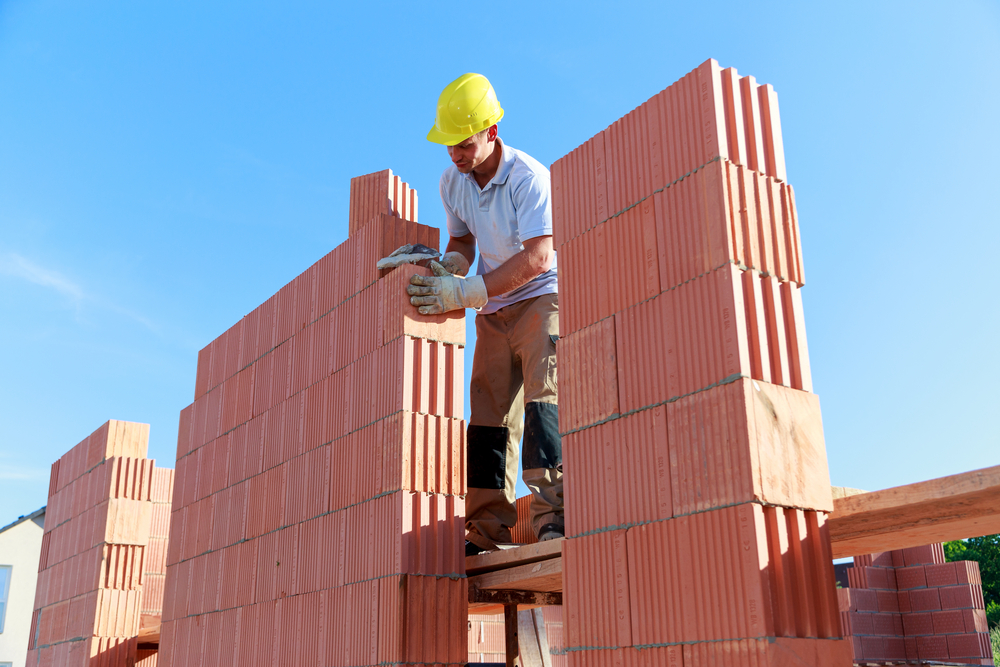

To use masonry supplies such as concrete and mortar in the Central Florida region, you need to know the weather and temperature’s impact on these supplies.
It would be best if you didn’t work on masonry projects in the rain. Extra water in your masonry project can wash the mortar away and weaken the bond in concrete. But in Central Florida, there is almost always rain in the forecast, so looking for a perfect, rain-free period is next to impossible. So you will need to do the next best thing and make sure that you have plenty of tarps and other protective coverings available at your worksite so you can protect your masonry work from the rain when it occurs.


High temperatures and high humidity can be expected on most days in the Central Florida region. Luckily high temperatures and humidity do not damage or weaken the performance of your masonry work as much as low temperatures and humidity do. But periods of hot weather may adversely affect the quality of your masonry work because of rapid evaporation and absorption of water from the mortar. When this happens, the water loss reduces the strength development of the mortar. If your masonry project lacks sufficient water, cement hydration slows or stops and weakens the bond strength and extent of bond between brick and mortar.
The Specification for Masonry Structures (TMS) defines hot weather as a temperature above 100 °F (37.8 °C), or 90 °F (32.3 °C) with a wind velocity greater than 8 mph (12.9 km/hour). The wind speed, relative humidity, and solar radiation influence the set rate and how fast the mortar dries. If the masonry is not sufficiently hydrated during construction, the mortar may “flash set,” which may compromise the mortar’s integrity.
The current American Concrete Institute (ACI) defines cold-weather concreting as a period when for more than three successive days the average daily air temperature drops below 40 °F (4.4 °C) and stays below 50 °F (10 °C) for more than 12 hours of any 24-hour period. Although rare in Central Florida, cold temperatures do occur and may cause the concrete to freeze, which weakens it significantly (up to 50%). Concrete needs to attain a compressive strength of 500 psi to resist expansion and freezing, which usually occurs within 24 hours.
Cold temperatures also impact mortar properties, making it more susceptible to cracking or weakening the bond of the mortar to the brick or stone it is used with. So special care must be taken with mortar during the application, such as heating the mortar and insulating the masonry while the mortar cures.
Bedrock Orlando has provided a wide variety of brick types and styles, natural and manufactured stone, and mortar such as type S and type N mortar in various mortar colors to Central Florida customers for over 20 years now. For more information, give us a call at 407.859.1300, or fill out our handy online order request form to speak to one of our masonry supply specialists today.
If so, why not reinvest the money you would have spent on your spring break to improve your driveway, sidewalks, or patio area with Orlando permeable concrete pavers? Make the time spent at home safer and more enjoyable now and enjoy a lifetime of good memories in the future by investing in a new outdoor project today. Give us a call at 407.859.1300 to get the process started right away.